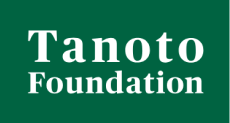About Stunting
The Indonesian government recognizes the urgency of addressing stunting and has set ambitious targets for its reduction. The 2022 Indonesia Nutrition Status Survey reflects progress, with stunting prevalence decreasing from 31% in 2018 to 21.6% in 2022.The government continues to be committed to further reducing stunting rates.
Through the SIGAP program, Tanoto Foundation contributes to these efforts by supporting the government’s initiatives at both national and sub-national levels. At the national level, the Foundation helps implement various nationwide stunting prevention and reduction programs. At the sub-national level, Tanoto Foundation supports several provincial and district governments in promoting cross-sectoral program convergence and implementing behavior change communication (BCC) strategies.
These initiatives involve collaboration with local government, development partners, implementing partners, and local organizations. Tanoto Foundation ensures consistent implementation, monitoring, and evaluation to measure progress and reinforce a collective effort toward achieving national stunting reduction targets.

Partnering for a Healthier Future: Tanoto Foundation and UNICEF’s Collaborative Effort
In partnership with UNICEF, Tanoto Foundation is committed to reducing the prevalence of stunting in Indonesia by assisting the government in implementing Strategic Behavior Change Communication (SBCC) strategies through technical assistance.
Additionally, Tanoto Foundation and UNICEF work to improve Early Childhood Education and Development (ECED) by developing a measurement and monitoring method for the physical, social, emotional, and cognitive status of children, specifically designed to meet the needs of children in Indonesia. These efforts aim to help every child reach their full potential.
Stunting Reduction Efforts
To support the Government of Indonesia in reducing stunting rate, in 2021, Tanoto Foundation and UNICEF initiated partnership program called “Unlocking Future Potential with Nutrition: Toward Zero Stunting in Indonesia”.
This program giving technical assistance for Central Java and South Sulawesi Government to implement Strategic Behavior Change Communication (SBCC) in districts/municipalities within these provinces.
The Impact
- 12 million people impacted
- 350,000 pregnant women and caregivers benefited
- 8,128 health workers trained
- 23 districts assisted
Tracking Early Childhood Development
Beyond reducing stunting, Tanoto Foundation and UNICEF have supported the Government of Indonesia since 2020 in improving Early Childhood Education and Development (ECED). This collaboration focuses on adapting international standards to the Indonesian context and assessing children’s physical, cognitive, linguistic, and social-emotional development.
With a grant from Tanoto Foundation, UNICEF has developed two customized assessment tools—the Caregiver Reported Early Development Index (CREDI) and the Early Childhood Development Index (ECDI)—which can be adapted as measurement instruments for early childhood development in Indonesia.

Building a country begins with the development of human capital. By supporting the development of children during their crucial early years, Tanoto Foundation is helping Indonesia invest in its future.
Stunting in Indonesian Children
Research has shown that one in five children in Indonesia still suffers from stunting, a condition in which a child fails to grow to the proper height for their age resulting in impaired development.
Stunting is the result of poor nutrition, inadequate access to education and insufficient emotional support during crucial developmental phases. Stunted children exhibit slower brain development, are more susceptible to health problems, and are generally more limited in their options and aspirations as they grow up.
Multiply these issues across multiple locations and over several generations, and the impact will eventually cause a significant loss in the country’s GDP.
Taking Action to Reduce Stunting Rates
Understanding that proper nutrition and education can prevent stunting in children, Tanoto Foundation, in partnership with the Gates Foundation and the World Bank, helped establish the Multi-Donor Trust Fund (MDTF) for Indonesia Human Capital Acceleration (IHCA). Launched in 2020 and extended until 2029, this initiative aims to support the World Bank’s Investing in Nutrition and Early Years (INEY) project, focusing specifically on reducing stunting prevalence in Indonesia.
Tanoto Foundation’s involvement in MDTF-IHCA builds on its ongoing efforts to strengthen existing stunting mitigation measures while catalyzing multi-sectoral collaboration to ensure sustainable, long-term outcomes for Indonesia’s future generations.
MDTF-IHCA Goals
Supporting the Indonesian government in establishing and sustaining:
1. Strong leadership
2. Improved quality of spending on national and local programs
3. Enhanced sectoral and local performance
4. Increased citizen engagement in frontline service delivery
Scope of MDTF-IHCA
Managed by the World Bank, the MDTF finances a variety of activities across four key components:
1. Leadership, Knowledge, and Learning
2. Support for Sector Reforms, Jobs, Equity, and Inclusion
3. Local Service Delivery Performance, Capacity, and Innovation
4. Behavior Change Communication, Citizen Engagement, and Social Accountability
Target Impact
Reaching 10 million families across Indonesia.


